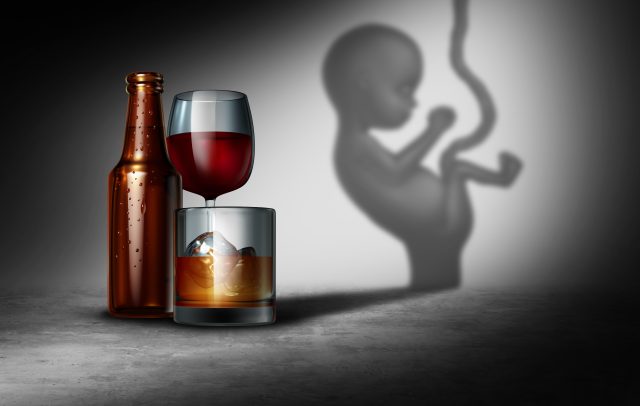Research claims father’s drinking affects baby’s development
The amount of alcohol consumed by fathers could be a “significant factor” in babies born with Fetal Alcohol Syndrome, new research has found.

Previously, babies born with birth defects associated with alcohol consumption such as fetal alcohol syndrome were, according to reports, diagnosed by only taking the mother’s drinking habits into consideration.
Now, research published this year, has identified that sperm can carry a vast amount of epigenetic information that can strongly influence fetal development and child health. The latest findings reportedly illustrate heritable shifts in the way genes are expressed that don’t result from changes in the DNA sequence.
According to the Centers for Disease Control and Prevention (CDC), men drink more and are more likely to binge drink as well as almost four times more likely to develop alcohol use disorder than women.
Reports claim that despite the findings, most doctors do not take into account the influence of paternal health and lifestyle choices on child development.
Heading up the research, Texas A&M University professor Michael Golding said: “I am a developmental physiologist, and my research explores the ways that male drinking affects fetal development. While most of the attention is given to the mom’s drinking while pregnant, my team and I focus on male drinking in the weeks and months before conception. Our studies are the first to demonstrate that male drinking before pregnancy is a plausible yet completely unexamined factor in the development of alcohol-related craniofacial abnormalities and growth deficiencies.”
Back in 1981, a public health warning was issued by the US surgeon general outlining that alcohol use by women during pregnancy was the cause of physical and mental birth defects in children.
According to the CDC, this fetal alcohol syndrome can occur when alcohol in the mother’s blood passes to the baby through the umbilical cord. This belief has led to the firmly accepted understanding that alcohol-related birth defects are allegedly caused solely by maternal alcohol use during pregnancy and are the mother’s fault.
Partner Content
Nonetheless, the findings show that there are multiple documented instances in which children diagnosed with fetal alcohol syndrome were born to mothers who denied that they consumed alcohol during pregnancy.
The research laboratory in the study used a mouse model to determine what happens if one parent or both parents drink. Fetal alcohol syndrome is said to be associated with core signifiers that can be detected by facial features along with fetal growth restriction, which occurs when babies are born smaller than average.
Building on a previous study in humans, the researchers used facial recognition software to study the effects of alcohol consumption on the faces of mice born to mothers, fathers or both parents who consumed alcohol before conception.
In the study which used a digital image of the mouse’s face, the researchers were then digitally assigned facial landmarks, including specific parts of the eyes, ears, nose and mouth to determine if maternal, paternal or dual parental alcohol exposures changed the proportions.
The study revealed that chronic male alcohol exposure affects the formation of the offspring’s brain, skull and face, the underdevelopment of the head and brain along with lower birth weight, which reportedly became worse the more alcohol the male parent imbibed.
The studies ultimately concluded that chronic male alcohol exposure – defined as consuming more than five drinks per day in a four-hour window – could create the core fetal alcohol syndrome birth defects.
In presenting the research, Golding stated: “I fully anticipate that some within the medical and scientific communities, as well as the public, will forcefully deny that paternal drinking matters. However, until doctors start asking the father about his drinking, we will never fully know the contributions of paternal alcohol exposure to birth defects and child health.”
Related news
Chimpanzees filmed enjoying alcohol together




